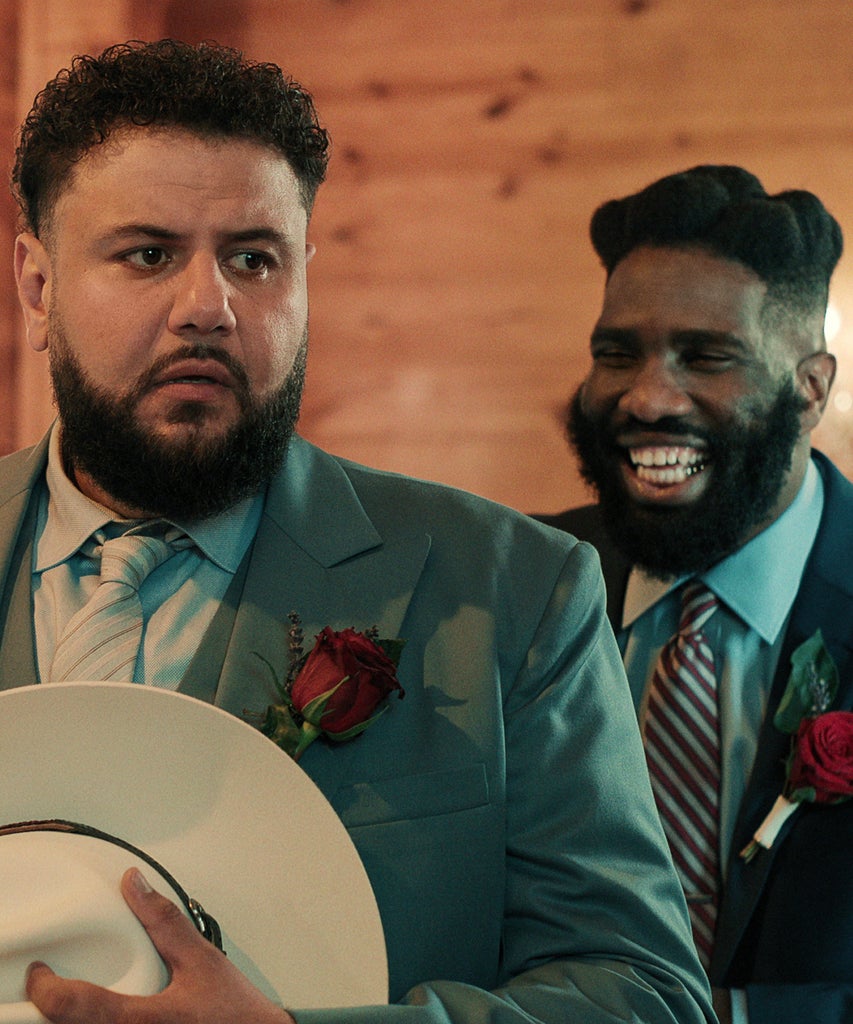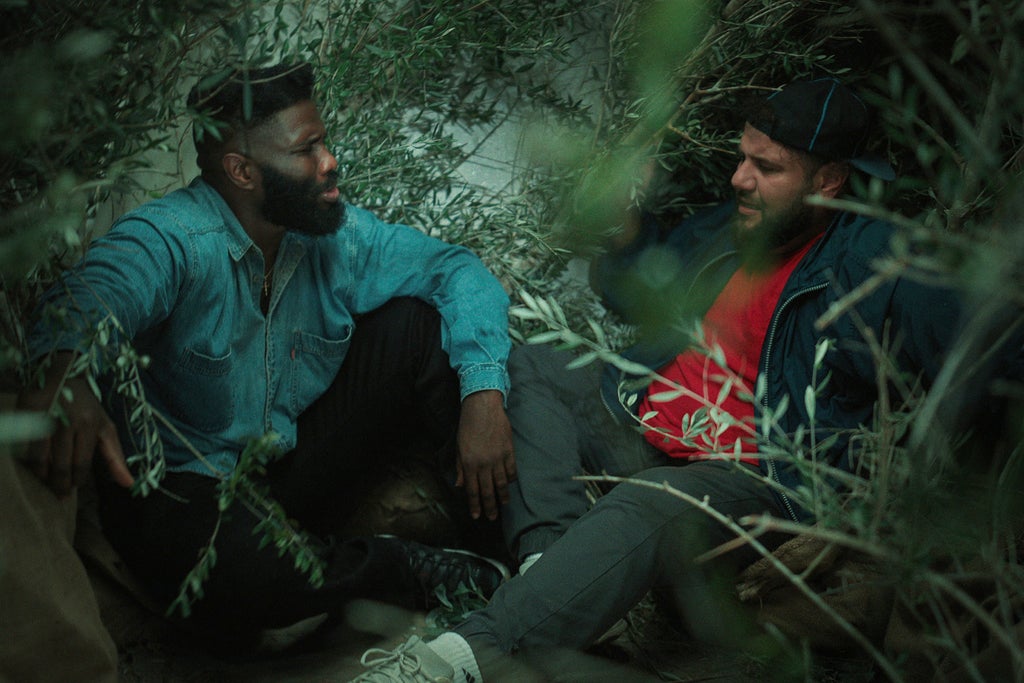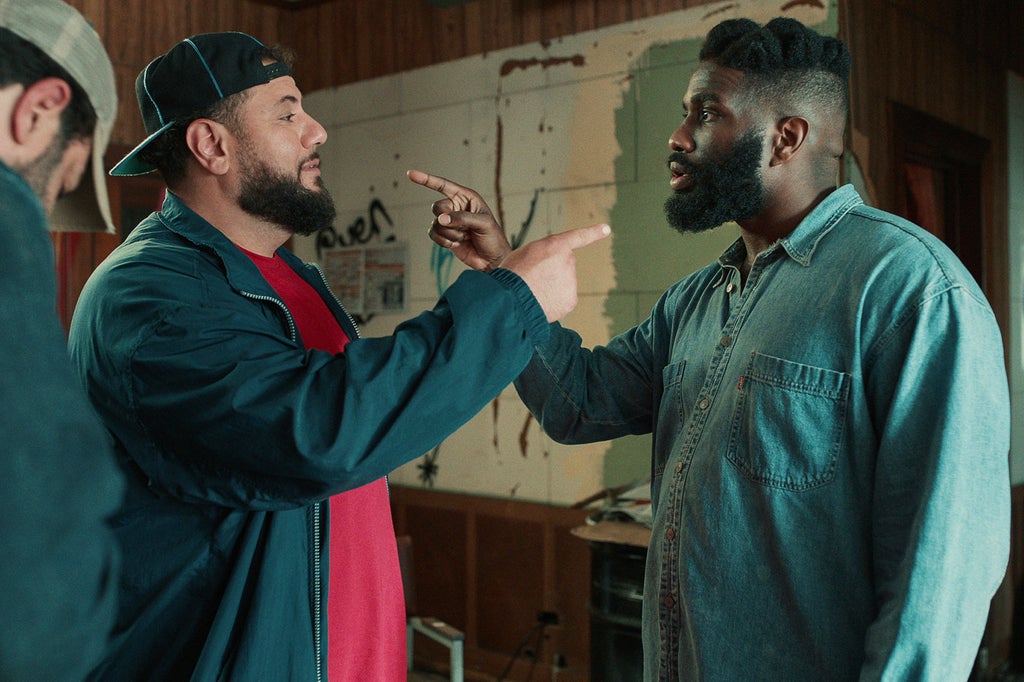
To understand what an accomplishment Netflix’s buzzy new series Mo is, you must first recognize that it wasn’t all that long ago where the idea of humanizing Palestinian content of any sort in Western media was seen as verboten. And the stories of refugees were relegated to exploited tragedies instead of humanized depictions. Notably, in 2018, professor and author Marc Lamont Hill was fired from his CNN contract for delivering remarks at the United Nations where encouraged nations to protest Israel until there is “a free Palestine from the river to the sea,” a (seemingly innocuous) statement that sparked furor from multiple groups accusing Hill of promoting hate and anti-Semitism. Fast forward four years, and not only is a Palestinian story gracing the screens of everyone with a Netflix subscription, but it is also framed within a love letter to Black Houston culture and the community that shaped Palestinian-American comedian, star and creator Mohammed Amer. Mo is a sharp and humorous story that leans into the farce of the American dream as much as it examines the tragedy of American imperialism, with twists and turns more thrilling and unexpected than a ride at the Houston Funplex.
From episode to episode, Mo offers humorous slices of life insights into Mo Najjar’s journey to make a life as a refugee in America with no work visa. Constantly enterprising, he works under the table at a cellphone repair shop, has a brief stint as a DJ at a strip club, and resorts to selling replicas of designer wares out of the trunk of his car. He reconciles his commitment to his mother, siblings, and greater Palestinian family with the life he is building with his Mexican-American Catholic girlfriend, Maria (Teresa Ruiz, Narcos Mexico), who guilelessly flouts cultural expectations as much as Mo declines to include her on the nuances of his mother’s dogmatic aspirations for her children – which include them having a Muslim wife – while she works to chart out a career of her own as a mechanic. The narratives are enveloped in a musical score that renders a wholistic soundscape of the Najjar family trajectory — classic records from Houston’s Screwed Up Click and Paul Wall play as the camera pans around Mo’s drive in Alief, Texas in one scene, while the rich text of Arab music, from Palestinian-Chilean Elyanny’s infectious Arab pop to Palestinian-American Clarissa Bitar’s compositions for the oud.
Mo sits in physical and in political community with Houston’s Black community… all of this is densely communicated in coarse punchlines, reinforcing the nearly-imperceptible space between tragedy and comedy.
There’s a natural instinct to compare Mo to Ramy, and not just because the latter’s star and creator Ramy Youssef is also producing the series. It is an understandable comparison since both are auto-fiction shows that explore life as young Muslim men within an Arab-American community. But it’s a bit of a false cognate — where Ramy is tinged with ennui, Mo is brimming with reverence, not only for his ancestral homeland, but the land that raised him when his family needed respite as refugees from the Gulf War. Layered within comical beats lies an examination of what the definition of homeland means, through the lens of a man who has processes the many ways her navigates the liminal space between the home that Mo has come to know the one that he longs for, and the various ways he manages to find kinship in his travails.

While Mo’s ancestral homeland of Palestine remains inaccessible to him as long as he does not possess a passport, the land of Palestine, Texas, sits just a few hours away. And so does an olive farm, harkening Mo back to his fond relationship with an unadulterated export – hummus and homemade olive oil – passed down through generations, despite American persistence to proliferate the market with bastardized modifications of an “Israeli” recipe, which Mo sardonically remarks is a “bit of a branding issue.” Mo explores the idea of being the descendants of displaced Indigenous peoples along with the Indigenous community in the Americas, who have been at the mercy of American, British, and Spanish power struggles of their own.
Mo sits in physical and in political community with Houston’s Black community — replete with the requisite Bun B guest appearance — that has had its own history of disenfranchisement that the character Mo connects with through his close friendships as well as its cultural legacy. All of this is densely communicated in coarse punchlines, reinforcing the nearly-imperceptible space between tragedy and comedy. Mo’s best friend Nick is portrayed by Alief, TX native, rapper Tobe Nwigwe, and serves as the anchor to a different end of America’s carceral process; Houston’s iconic chopped and screwed music frames Mo’s emotional ups and downs. A night at an amusement park turns into dark jokes about Palestinians being able to throw rocks, an ill-fated trip to the Supermarket reinforces the futility of evading violence either in the Gulf or the “safer” American shores. Unable to afford a trip to the emergency room, a patch-up job on a bullet wound by a tattoo artist leads to a lonely promethazine spiral for Mo.

Implicit in the show’s writing and directing is an understanding that fighting for freedom is a shared struggle that is being realized in different mediums, whether people are seeking escapism from their traumas or continuing to fight. It is a sentiment that is similar to the mobilization that seemed to unify the world in mid-2020, when George Floyd’s murder resonated globally and spurred engagement in solidarity in Palestine – in this case, it’s applied under the auspices of comedy, showcasing Black immigrants waiting in the ICE courthouse facilities alongside Mo’s family and lending a brief nod to the variety of their struggles. It’s a thoughtful and distinct evolution of communicating fellowship for Amer, who received significant pushback from the Black Muslim community for his use of the n-word in a stand-up bit in which he reenacted a conversation with Dave Chappelle. These nuances serve as reminders that solidarity, as heartwarming and empowering as it can be at its best, is often transactional, and, at times, borderline absurd.
There are times that the absurdism can become a little hamfisted – a caper involving a disgruntled drug dealer, for example, devolves into a scene that is more befitting an episode of Shameless than Mo. At its core, however, Mo shines at not only creating a uniquely Palestinian story, but showing how that saga of purgatory sits in proximity with so many other realities of the American narrative, particularly for working class non-white groups.
The series connects and transports a global struggle between time and space while Mo tries to carve out a space to call his very own after being hit with a novel roadblock at each turn. At times the obstacles feel nearly insurmountable – a particularly harrowing scene in immigration court lays bare the heft of the constant struggle Mo’s family has endured – but as his mother informs him, “We carry on!” Mo isn’t necessarily a victorious tale, but it is one that finds value in staying true to one’s core principles, and having faith that your battle as a marginalized group will ultimately be understood, no matter how long you have been tested. Hopefully those convictions bear out to be true, both in the series and in real life.
Like what you see? How about some more R29 goodness, right here?
Sollywood Has Another Hit On Its Hands
Netflix CEO Doubles Down On Dave Chappelle Defense
Why Does Television Hate Its “Woke” Characters?
from Refinery29 https://ift.tt/PLdlBEt
via IFTTT
